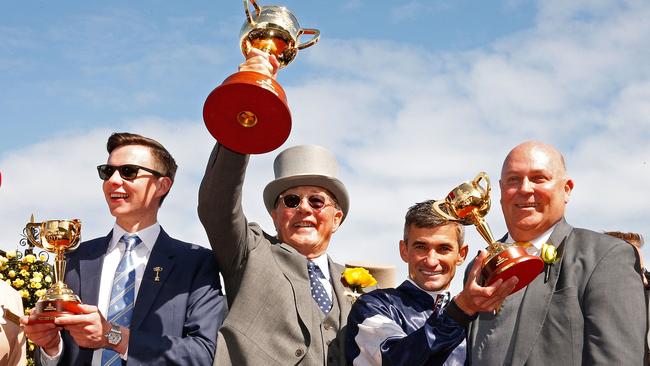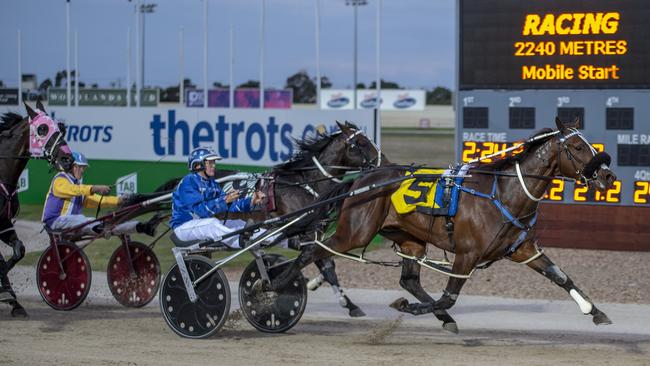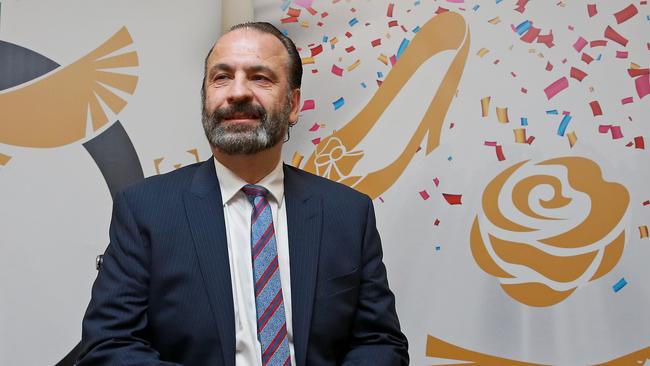Andrew Rule: The lessons we must learn in horse racing
Horse racing has been poorly managed in many places but in Victoria, authorities can learn from their harness racing cousins, writes Andrew Rule.
Buried in the welter of “bad news” for horse racing in the last year or two — from Aquanita and Darren Weir’s disgrace to last week’s abattoir outrage — is the fact that its country cousin, harness racing, has cleaned up its act so well it’s being held up as an example. In Victoria, at least.
In 2015, a homicide detective, Brent Fisher, moved to Harness Racing Victoria to pursue his vocation of catching crooks. When he started, HRV had one full-time investigator. Now it has five. Fisher’s “Untouchables” use the full bag of crime-fighting tricks, from airborne camera drones to “imaging” mobile telephones, to beat cheats.
The result, according to the recent annual audit by the Racing Integrity Commissioner, is that Victorian harness racing is now better policed than gallopers or greyhounds. “Industry leading” are the report’s exact words.
Fisher’s new broom applies not only to betting integrity but to animal welfare. The audit, done before the ABC television exposé, shows that the right people and equipment are making harness racing cleaner than it ever was.
The lesson for the sport-betting industry is that omelettes are made by breaking eggs and applying fierce heat, preferably under a bright light.
If racing is at a crossroads, as multiple Melbourne Cup owner Lloyd Williams suggested this week, then it’s time to stick with the omelette formula of light and heat rather than walking on eggshells.

The Aquanita and Weir cases show that these days, the Sport of Kings does not tolerate a level of skulduggery the way it might have once. It can’t afford to sweep dirt under the rug — because someone with a camera is going to find it. The sooner everyone concerned gets that message, the better.
Williams didn’t become a billionaire by chance. When he says racing needs to be ahead of public opinion or risk hitting a brick wall, he’s right. Scoffers should remember that circus animal acts have gone the way of cockfighting and harpooning whales.
The “negative” headlines that make racing’s image experts feel sick are part of the process. Truth is, blazing publicity does not show how dirty racing is but how clean it’s becoming.
When the police arrest crooks, we like the fact fewer crooks are on the street. So nailing “big names” means racing is more transparent now than in the bad old days of rorts, rogues and ring-ins.
A persistent story whispered around stables is that a well-known figure was detected (well after the event) winning the nation’s greatest race with a horse that had more drugs in it than Joe Cocker. Gossip says the case was quietly buried because someone, somewhere, feared the scandal more than the skulduggery.
That old idea that some names are too big to fall probably died the day Darren Weir was collared, but racing now has to beat a bigger problem than a rogue trainer.
Not many industry people are willing to call out NSW racing supremo Peter V’landys for the way he snatched defeat from the jaws of victory over the inevitable “wastage” of horses.

V’landys was too smart by half. After the greyhound scandal of 2015, he saw that horses were next. But he assumed his industry could dodge a bullet just by proclaiming loudly that no NSW racehorse would get one. He rashly handcuffed the state that produces half Australia’s foal crop to a mad policy of banning any thoroughbred from slaughter.
This was like Bob Hawke’s outrageous election “promise” that “no child would live in poverty” … eye-grabbing but impossible to deliver. A classic politician’s diversion.
What all domestic animals deserve is a swift, humane, respectful end without fear or pain. Whether it is by lethal injection, stun gun, bolt or bullet doesn’t matter. What matters is how the animal is treated up to the split-second when life ends.
To achieve that, Victoria has to learn from the mess north of the Murray and do the right thing: set up a world-leading horse meat plant overlooked by racing industry and animal welfare groups.

Like NSW, America got it wrong. Activists there managed to shut down horse abattoirs across the USA, automatically condemning thousands of unwanted horses to awful truck trips across borders into Mexico and Canada for slaughter under mostly worse conditions.
The racing industry could and maybe should consider backing a retraining school on a property dedicated to the minority of racehorses suitable for rehoming. There’s even an argument the industry could push for longer education of young horses to give them more chance of being safe hacks, showjumpers or polo ponies after racing.
ANDREW RULE: HORSE SLAUGHTER A HARSH TRUTH
But the key part of a three-point plan is an ethical abattoir. To claim otherwise is either dishonest or ignorant. Victoria’s brains trust need only look over the Murray and the Pacific to see the mistakes to avoid.
Apart from that, of course, far more owners should pay to euthanise horses the way they do with pet cats and dogs. This is much better than the callously sentimental act of giving horses away to gullible people who can’t afford to feed them properly, half-starve them then send them to a knackery too far away.
Andrew Rule is a Herald Sun columnist

